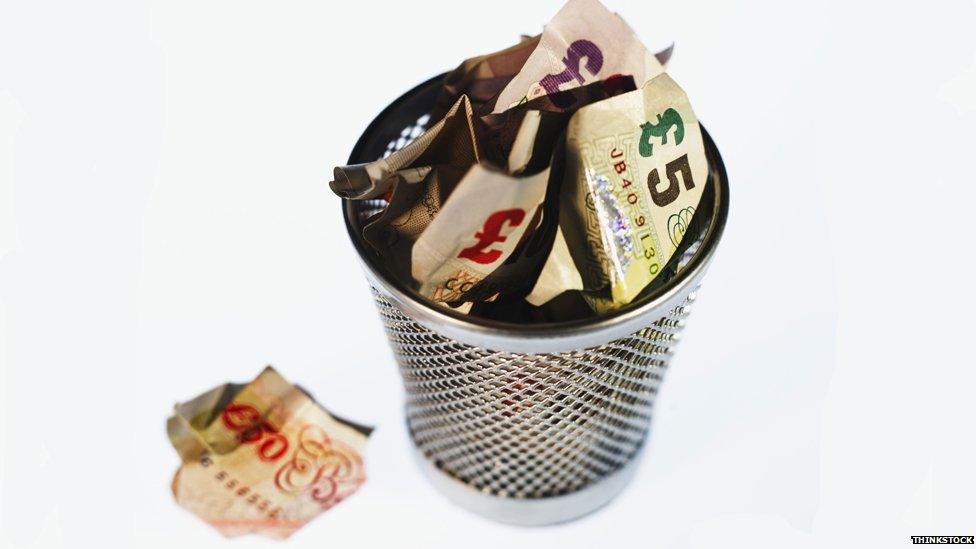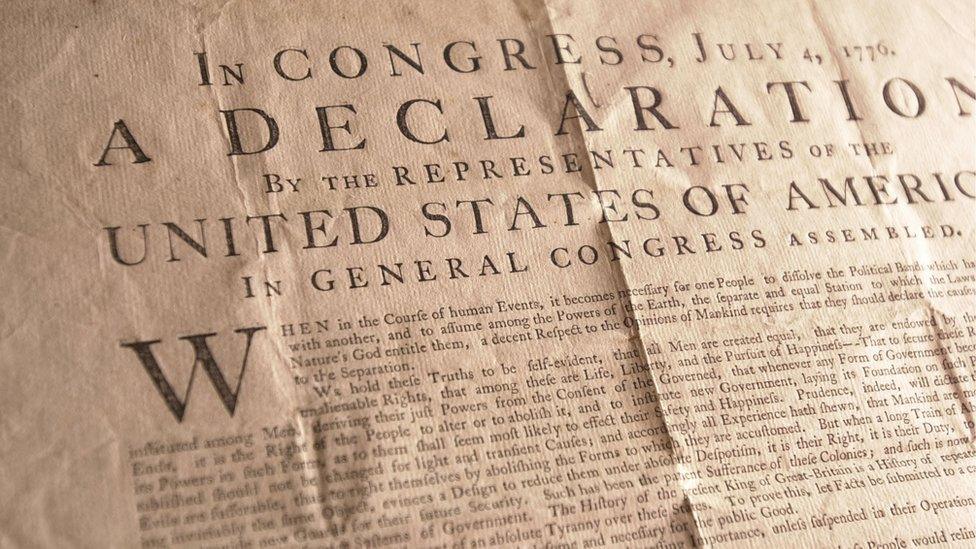The exquisite pain of life-changing throwaways
- Published

A search is on for a woman in California who unwittingly gave away a 1970s Apple computer worth $200,000 (£131,000). But what other potentially life-changing assets have previously been lost in this way, asks Justin Parkinson.
It's the dream of millions of people - that one stroke of luck that can free you forever from having to earn a living. Winning a lottery, an unexpected inheritance, finding a work of art in the attic. But what if the opposite happens and you unwittingly give away, or sell for a pittance, an object that could have made you rich?
A woman in Clean Bay, California has done this, and might not even know about it yet. She cleared out the garage, handing in an apparently valueless computer to a recycling company, which sold it on for a vast sum. It's trying to contact the woman so she can get half of the money. Her story might still end happily. Not all do.
Martyn Tott, who lost a £3m lottery-winning ticket, external in 2001, took several years to deal with what had happened, describing it as "torture". But, after overcoming a self-declared obsession with the money, he said he had learned to find comfort in life's "simple pleasures".
A man bought a torn painting in a flea market in Adamstown, Pennsylvania, in 1989, thinking the frame might be re-useable. While removing the canvas, he discovered a document hidden behind it. It turned out to be an original of the 1776 US Declaration of Independence. This sold for $2.4m (£1.6m), external at auction. The owner of the market stall would have been less happy, having sold the picture for $4 (£2.63).

Don't throw this away
In 2013, James Howells realised he had thrown away a computer hard drive containing a "digital wallet" with 7.500 units of the Bitcoin virtual currency in it. Without the code key the drive contained, they couldn't be used. The value was then about £4m. Howells scoured a landfill site in south Wales for the equipment without success.
How does one cope with such disappointments? "The initial reaction would probably be to kick yourself," says Sandi Mann, senior psychology lecturer at the University of Central Lancashire. "Then you would probably go into mourning, the same series of processes you go through when dealing with any major negative life event.
"The other way to deal with the pain would be to go through a process we call cognitive dissonance - sort of deceiving yourself. You would say to yourself that your life would be worse if you had actually got the money."
There's evidence that this isn't just self-deception, and that being extremely wealthy doesn't increase happiness, external. "You could tell to yourself that you never actually had the money, so it doesn't matter," says Mann.
But perhaps the only fail-proof pain-preventive is not knowing what you've lost in the first place.
Subscribe to the BBC News Magazine's email newsletter to get articles sent to your inbox.